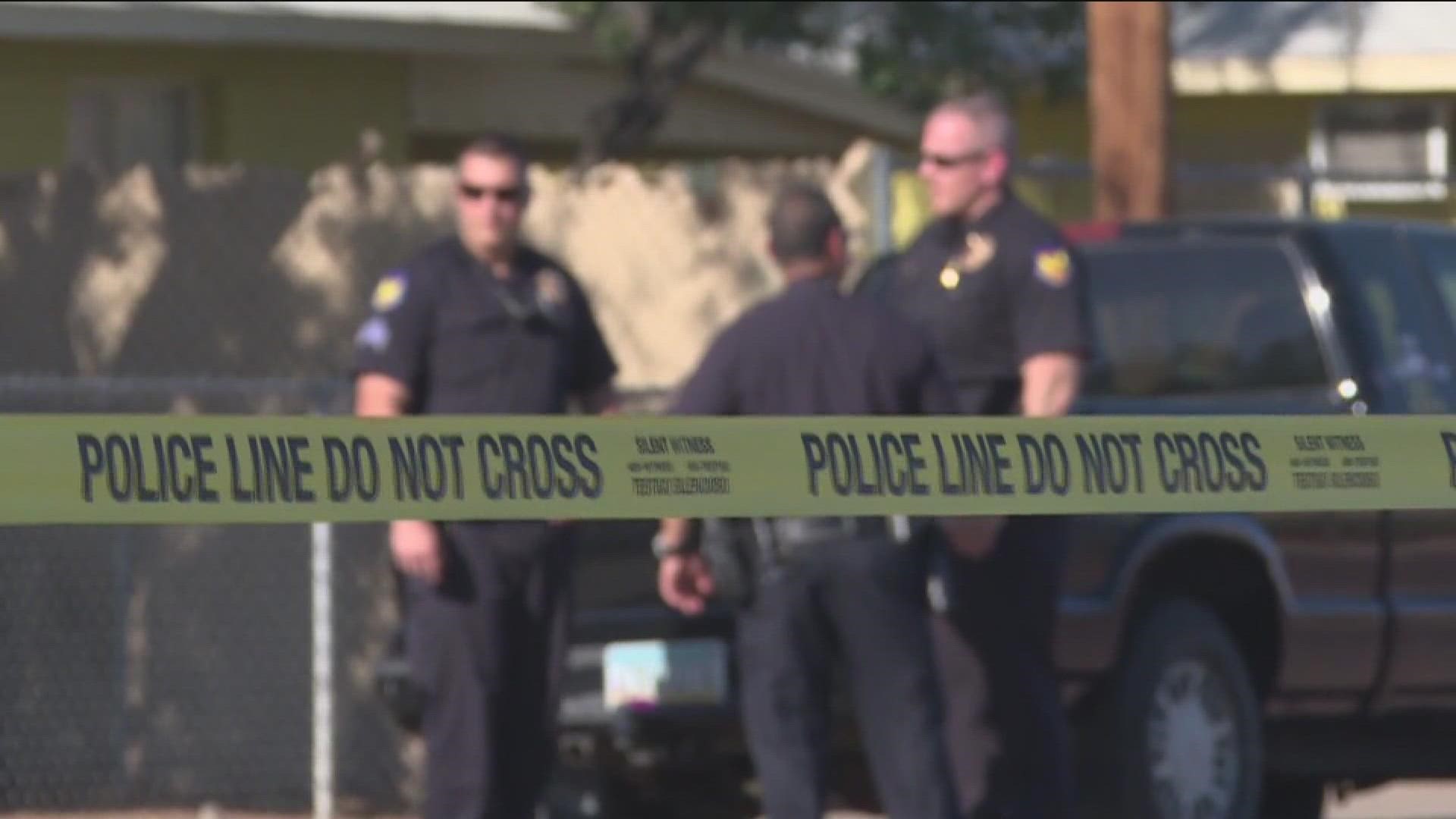PHOENIX — A controversial Arizona law restricting how the public can film police faced its first legal challenge Tuesday with a lawsuit filed by the American Civil Liberties Union.
The group's Arizona chapter, joined by several Arizona news organizations, filed a petition in U.S. District Court. They argue the law goes against First Amendment freedoms.
“This law is a violation of a vital constitutional right and will severely thwart attempts to build police accountability. It must be struck down before it creates irreparable community harm,” the ACLU wrote in a statement on its blog.
Bystander cellphone videos are largely credited with revealing police misconduct — such as with the 2020 death of George Floyd at the hands of Minneapolis officers — and reshaping the conversation around police transparency. But some Arizona lawmakers say legislation is needed to limit people with cameras who deliberately impede officers.
The law, signed by Republican Gov. Doug Ducey in July, makes it illegal to knowingly film police officers 8 feet (2.5 meters) or closer without an officer's permission. An officer can order someone to stop filming even if they are on private property, recording with the owner’s consent if an officer finds they’re interfering or deems the area unsafe.
The penalty is a misdemeanor that would likely incur a fine without jail time.
It was crafted by Republican state Rep. John Kavanagh, a former police officer, who argued officers need to be able to do their job without interference. The law still allows people to record police activity from a safe distance, he said.
"First of all, I'm a retired police officer," said Kavanagh. "I was an officer for 20 years in New York. If someone gets really close to you, especially from behind, you don't know if they're an accomplice or friend who'll attack you."
"I took into account many of the criticisms that the critics like the ACLU made about the bill, and I altered the bill," he said. "The first big change was the distance. You know, people said why 15 feet? I did some research that said the U.S. Supreme Court at an abortion clinic picketing case, ruled eight feet of buffer was constitutional and didn't violate the First Amendment rights of the protesters."
While Kavanagh said the law follows someone's constitutional rights, he's also not surprised to hear about the lawsuit recently filed.
"I believe the First Amendment is part of the Bill of Rights. These are sacred rights and protections that we have," he said. "I don't want to violate the Bill of Rights. But I think I've taken into account past decisions and criticisms, and I would love to see this go to the Supreme Court and have it affirmed so that we now have a national standard that's constitutional that balances the right of people to film cops with the right of cops not to be assaulted."
The original legislation was amended, so it applies to certain types of police actions, including the questioning of suspects and encounters involving mental or behavioral health issues.
People who are the direct subject of police interaction are also exempted. They can film as long as they're not being arrested or searched. Someone in a car stopped by police or being questioned can also film the encounter. Kavanagh said these changes were made with input from the ACLU.
Constitutional lawyer, Dan Barr, said the plaintiffs have a case.
"The courts have held repeatedly that people have a First Amendment right to do that," he said. "There's never been any showing that taking video of police doing their jobs in public places actually interferes with them."
He said Arizona also has a law that already makes interfering with police a crime.
"Arizona law already prohibits people from interfering with the police in doing their jobs," he said. "Usually physically interfering or doing something to interfere with them in doing their jobs. So, there's no purpose to this law. What this law does, is it takes a constitutionally protected activity, which is taking video of the police and criminalizing it when you're within your eight feet from police even if you're not interfering with them."
Barr also said the law is vague at times and needs more clarity.
"Think about the eight feet thing," he said. "Let's say you're in a protest march, and you're outside eight feet, and you're taking video of the police. Well, things move quickly, and suddenly you're within eight feet, and you've done nothing to do that, and now you're committing a crime."
In similar cases, six of the nation's dozen U.S. appeals courts have ruled on the side of allowing people to record police without restriction. Less than a week after the Arizona law took effect, the 10th Circuit Court of Appeals in Denver ruled that a YouTube journalist and blogger's lawsuit against a suburban Denver police department could move forward. The blogger claimed an officer blocked him from recording a 2019 traffic stop.
The Phoenix Police Department, which oversees the nation’s fifth-largest city, has been criticized in recent years for its use of force, which disproportionately affects Black and Native American residents.
Reporters and photographers say this law will make it nearly impossible to do their job, especially at massive events like protests. The outlets that are also plaintiffs in the suit include Phoenix Newspapers Inc.; Gray Television; Scripps Media; KPNX-TV; Fox Television Stations; NBCUniversal Media; Arizona Broadcasters Association; States Newsroom; Arizona Newspapers Association; and the National Press Photographers Association.
“We fear that, rather than acting as a shield to ensure ‘officer safety,’ this law will serve as a sword to abridge the ‘clearly established’ First Amendment right to video record police officers performing their official duties in public,” Mickey H. Osterreicher, general counsel for the National Press Photographers Association, said in a statement.
Up to Speed
Catch up on the latest news and stories on the 12News YouTube channel. Subscribe today.

